




|
Click on a picture to view a larger image, and then optionally use the arrow or page up and down keys to move among the enlarged pictures:










































































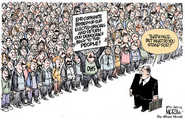





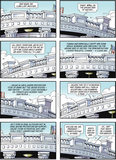
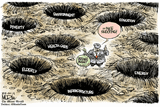

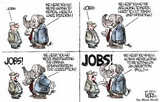



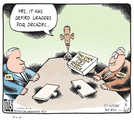








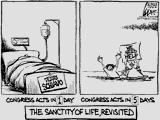

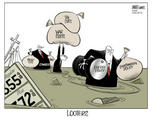
















Ethics questionnaire for potential Supreme Court justices
By John Ficarra, September 24, 2023, Albany Times Union
Dear Supreme Court Justice Nominee:
As part of an ongoing effort to hold future Supreme Court justices to the same ethical standards established by its current members, it is required that you complete the following ethics questionnaire. Please note all scenarios depicted are completely hypothetical.
A billionaire entrepreneur invites you and your spouse to accompany him on an all-expenses-paid luxury trip to Machu Picchu. The entrepreneur currently has a case pending before the court. Which of the following would you do?
A) Accept, with the provision that the offer includes free airport transfers;
B) Accept, then instruct your clerks to drop whatever case they are working on and quietly begin researching “101 Fun Things to Do in Machu Picchu”;
C) Respectfully decline, because the dates conflict with another all-expenses-paid trip a different billionaire is treating you to;
D) Any of the above;
E) None of the above.
A billionaire entrepreneur calls with an offer to buy your mother’s home, renovate it and then let her move back in to live rent-free. The entrepreneur currently has a case pending before the court. Which of the following would you do?
A) Interrupt the entrepreneur half-way through his offer with a jubilant, “Hell, yeah! Where do I sign?!?”;
B) Keep him talking on the phone while you quietly Zillow the house to make sure he isn’t lowballing you;
C) Accept his offer and set up a date so you, him and mom can go over kitchen cabinet and backsplash choices;
D) Any of the above;
E) None of the above.
A billionaire entrepreneur emails you with an offer to pay for your nephew’s college costs. The entrepreneur currently has a case pending before the court. Which of the following would you do?
A) Graciously accept, with the understanding that the decision to pick your nephew wasn’t race-based, because that would be wrong;
B) Graciously accept, but nail down in writing that housing, books and lab fees are part of the deal;
C) Graciously accept while casually mentioning that your nephew has a cousin, also of college age;
D) Any of the above;
E) None of the above.
A billionaire entrepreneur calls and offers your wife a consulting job at one of his companies. It pays $250,000 a year. The entrepreneur currently has a case pending before the court. Which of the following would you do?
A) Confirm that the position is part time; your spouse already does consulting work for several other corporations, think tanks and political organizations with business before the court;
B) Tell him okay, with the understanding that the position includes paid vacation. You have a big trip to Machu Picchu coming up;
C) Accept, but inquire if there is any chance that he could pay her “indirectly”;
D) Any of the above;
E) None of the above.
About 25 years ago you coveted a luxury RV costing hundreds of thousands of dollars. Unable to qualify for normal financing because of your meager federal employee salary, a billionaire entrepreneur offered to loan you the money. The press just found out about this and now is asking questions: What were the terms of the loan agreement? Did you completely repay it? Why wasn’t this sweetheart deal disclosed on your financial disclosure forms? Which of the following would you do?
A) Pretend you never received the press inquiries – claim you were on vacation touring Walmart parking lots in your RV;
B) Declare the questions nothing more than a “high-tech lynching” and stonewall the swine;
C) Tell them you don’t have the time to respond, you’re too busy working on a speech you’re about to deliver to the Federalist Society: “Why the Supreme Court Doesn’t Need an Ethics Code”;
D) Any of the above;
E) None of the above.
If you answered anything other than “E” for any of the questions, congratulations! You will make a fine addition to the Roberts Supreme Court. See you at the swearing-in-for-life ceremony.
John Ficarra of New York City is a retired editor of MAD Magazine.
|
In 'woke' fight, a warning
Leaders who ban the teaching of history's unsavory truths are laying the table for tyranny.
By Jay R. Yablon, June 11, 2023, Albany Times Union
For as long as I can recall, I sat in Seders every Passover. In the Seder, we read the Haggadah. This is a reminder that our Jewish ancestors long ago were subjected to slavery and punishment in the land of Egypt.
We learn about how the Egyptians killed the first-born male of every Jewish family (with the exception of Moses, whose mother found a clever way to save him), and we learn how the Jews escaped their enslavement. We talk about how in every generation there are those who have tried to hurt the Jewish people, and we now include in the Seder mention of the Holocaust in World War II, which killed 6 million of our brethren, and millions more besides.
The Haggadah is very conscious and deliberate about the inclusion of the very youngest children in this annual teaching and remembrance ritual. The youngest child is the one selected to ask four questions about the meaning of this observance. And once the four questions are asked, the ritual moves to a teaching of unpleasant historical truths. Nobody is excluded from reciting and hearing these teachings and remembrances.
Based on the political discourse now evolving in our country, some might say that the Haggadah is a “woke“ book that should be removed from schools, and that the Passover Seder itself is a “woke“ ritual which teaches vulnerable young children about very unpleasant historical truths, and so should be banned, or restricted or regulated as much as possible. After all, how much more “woke“ can you get than deliberately feeding the youngest of children information about unpleasant historical truths of slavery and captivity and targeted killing of individual groups simply because of who these groups are?
Of course, no one has proposed restricting the Haggadah or Seder practice. Yet.
But teaching about the mistreatment of Native Americans in this country? Teaching about how the ancestors of Black Americans were captured in Africa, enslaved and wantonly killed? Teaching about the historical discriminations that have occurred against people with sexuality not practiced by the majority? Woke! Banned! Too sensitive for young souls!
As an American Jew who was born in the decade following the Holocaust, I see serious dangers here.
When I grew up in the 1950s and 1960s, there was one historical lesson that to me was preeminent above all others: Never Again. As Gen. Dwight D. Eisenhower told photographers at the death camps, “Get it all on record now — get the films — get the witnesses — because somewhere down the road of history some bastard will get up and say that this never happened.” He was profoundly aware of the importance of history — not as a recitation of boring facts and events, but as protection against what can happen if people are not taught about the bad things that have occurred, and as a result are not on alert to prevent them from happening again.
What would Eisenhower say about a person, such as a particular Florida governor now seeking national office, who tried to prevent these photos from being shown, or this history from being taught, ostensibly because of the sensitivity of young souls? He would say that that person is the one he warned us about.
Again: No one has yet outlawed teaching about the Jews in Egypt or the targeted killings of people during World War II. Right now, the “war on woke” is not yet coming for the Jewish people in America. But it is coming for other groups of people. And it is clearly being used to stir up prejudices simply to advance the interests of certain politicians. So if we are not on the alert, then it can soon come for us, and our Haggadah, and our Seder, and our insistence on Never Again.
It is my belief that God, whatever that may be, created all of the people in this world who are not like me, in addition to those who are. And it is not my place — nor is it the place of any other human on this Earth — to draw distinctions that give preference to one group over another. As was declared with the independence of this nation: “We hold these truths to be self-evident, that all (people) are created equal.” The facts on the ground at the time did not match the rhetoric, but at least we started out with a sound principle to help us grow and evolve toward a better and freer world.
Tyranny begins with the silencing of speech. Our founders knew this, and it’s why we have the First Amendment. In 1933, books were burned in Germany; a few years later, organized killings were under way. When reasons are fabricated to bar the teaching of unpleasant historical truths, then those unpleasantries become destined to repeat themselves. When people look away as other groups’ histories are silenced, it will not be long before their own histories are silenced. And then it is just a matter of time until those historical abominations are repeated.
Jay R. Yablon, a retired patent attorney, lives in Niskayuna.
|
Nation can find its way along dark road
By Betsy Bitner, November 6, 2022, Albany Times Union
A line from Joni Mitchell’s “Big Yellow Taxi” has been going through my head a lot lately: “You don’t know what you’ve got till it’s gone.” The truth of that lyric became painfully clear recently as I was driving to an evening meeting.
The meeting was at a house I hadn’t been to before and it had gotten dark before I left home. Not long into the drive it began to rain. I put on my wipers but soon realized that clearing the windshield of the raindrops didn’t increase visibility. In fact, the swish-swish motion of the wipers made it harder to see the lines on the road. As I gripped the steering wheel while cars whizzed past me on either side, a couple of thoughts came to mind. When did night get so dark? Why don’t they use brighter paint to mark the lines on the road? When did I start sounding — and driving — like an old person?
I didn’t have time to ponder those questions, though, because I was too busy wondering why everyone else’s headlights were too bright and mine weren’t bright enough. Just as I was exiting from an unfamiliar highway onto an even more unfamiliar highway, my cellphone rang. At first I thought it might be the car behind me calling to tell me I’d had my turn signal on for the last five miles, but it turned out it was a friend who was concerned about my car’s extended warranty. Just kidding. She wanted to know the address where we were meeting.
Unfortunately, I didn’t have that piece of vital information. Well, I did, but it was on my phone, which I was using at that moment to talk to my friend, so I couldn’t access it. So, to recap, not only was I struggling to see where I was going, I had no idea where I was going in the first place. If I’d stopped to pick up a hitchhiker, I would have had a safe driving trifecta. We both knew the name of the street, but not the three-digit house number. I rattled off three numbers that sounded right (I mean, how many possible three-digit combinations could there be?) and, after she hung up, wondered if I’d ever see her again.
I did see her again — at the house where we were meeting, which was about a quarter of a mile from the address I’d given her. We were able to laugh about it mainly because others admitted that they’d had trouble driving on the rainy night, too. While I could take comfort in knowing I wasn’t alone, it didn’t solve an unavoidable problem. Namely, that I was going to have to drive home in the dark. And, while it would have been easy to just stay home at night from now on, I needed to work on this if I were ever going to get anywhere. Despite my fears, despite not knowing what lay ahead, and despite being in unfamiliar and uncharted territory.
Night vision was something I’d always taken for granted. Just like democracy. Yes, I’m going there. Did you really think I’d spend all this time on a boring story without having some sort of point? (Wait, don’t answer that.) But stay with me here because this election is too important.
Yes, we’re all tired of hearing about it and we may wish we could just stay home and think about something more pleasant. That’s not a viable option though, because as a country, we are on a road we’ve never been on before. And it is dark. Very dark. But instead of exercising caution, we are barreling ahead toward a place that is very different from the America and its ideals we like to extol in songs, and anthems, and pledges.
The only way to take control of the wheel is to vote. And, really, if you care about democracy and the future of this country, there is only one party to vote for down the ticket. This is not a “both sides” highway, and at the moment there doesn’t even seem to be a middle of the road. There is only one party that denies the results of elections they don’t win. There is only one party whose leaders have openly embraced hate speech. There is only one party that has remained silent in the face of political violence, or mocked and even encouraged it. If we continue down this road toward whatever dark place the Republican Party wants to take us, our democracy will crash and burn.
Voting for Democratic candidates may not get you exactly where you want to go but, like me giving an address to a friend on a rainy night, it will get you close to where you need to be. Vote on Election Day like our democracy depends on it, because it does. You really don’t know what you’ve got till it’s gone.
|
Yet another lawsuit shows how abortion bans violate religious freedom
By Jennifer Rubin, October 9, 2022, Washington Post
In July I wrote about a lawsuit in Florida challenging the state’s abortion ban on the grounds that it violates the religious beliefs of Jews — and members of other faiths — who do not believe in the Christian dogma that human life begins at conception. Now, three Jewish women from Kentucky have filed a similar suit.
One of the plaintiffs is undergoing in vitro fertilization. Another one is storing nine embryos. And another is “of advanced maternal age and faces many risk factors if she chooses to have a third child,” the complaint explains. It adds, “Individuals of Ashkenazi Jewish ancestry have a heightened risk of passing on genetic anomalies, like Tay-Sachs disease, for which there is no cure and the average life span of those with the condition is four years of age.”
Yet Kentucky’s abortion law, the complaint argues, would arguably make both an abortion after genetic counseling or the destruction of IVF embryos capital murder.
Contrary to the officiousness of the right-wing Supreme Court justices, who seem not to understand that they applied their own religious views in their ruling overturning abortion rights, the complaint explains:
"Judaism has never defined life beginning at conception. Jewish views on the beginning of life originate in the Torah. ... Millenia of commentary from Jewish scholars has reaffirmed Judaism’s commitment to reproductive rights.
"Under Jewish law, a fetus does not become a human being or child until birth. Under no circumstances has Jewish law defined a human being or child as the moment that a human spermatozoon fuses with a human ovum.
"The question of when life begins for a human being is a religious and philosophical question without universal beliefs across different religions."
The last sentence is key. The so-called state interest in preserving “fetal life” depends on the assumption that a fetus deserves the same protection as a toddler. But for Jews, “the necessity of protecting birth givers in the event a pregnancy endangers the woman’s life and causes the mother physical and mental harm” must control. Moreover, “the law forces Plaintiffs to spend exorbitant fees to keep their embryos frozen indefinitely or face potential felony charges.”
For that reason, the complaint alleges that the Kentucky abortion law violates the First Amendment and the state constitutional protection for religious freedom — as well as the state’s Religious Freedom Restoration Act. The latter part of the lawsuit may become moot should Kentucky voters pass a ballot measure that would declare the state constitution does not protect abortion access. But, in any case, forcing others to comply with the religious-based edicts of one sect flies in the face of the constitutional guarantee of free religious expression.
The complaint also alleges that the Kentucky law should be void for vagueness under the 5th and 14th Amendments. As with so many laws triggered by Dobbs v. Jackson Women’s Health Organization that predate modern medicine, it’s not clear whether the law requires preservation of the embryos. Moreover, the complaint argues, Kentucky’s abortion law “does not impose clear standards, rules, or regulations regarding the potential experiences of potential birth givers with regards to their access to reproductive technology.”
Regardless of whether the lawsuit succeeds, it raises three critical issues that apply in legal challenges to abortion bans. First, it pulls back the curtain to reveal that judges are acting on a religious, not scientific, view of personhood. The arrogance in assuming that everyone buys into a specific Christian sectarian viewpoint reveals the degree to which right-wing courts and legislatures ignore or disfavor Americans who are not Christian. It’s critical to force politicians, media, pundits, doctors, researchers and ordinary voters to recognize this.
Second, the lawsuit makes clear the negative impact on IVF, which was not in existence when many state abortion bans were passed in the 19th or early 20th century. The current crop of state lawmakers and Supreme Court justices seems willfully oblivious to the implications for such reproductive care. Do they really want to make a commonly used process for procreation effectively impossible?
Finally, it’s not just the Kentucky law that is vague to the point of unintelligibility. Many state statutes use vague, nonmedical terms to put doctors and patients in untenable positions. Should physicians render care to a pregnant woman experiencing a dangerous pregnancy, risking prosecution under the opaque language of a 19th-century law, or should they let the patient’s condition become so acute that she might fit within an exception for preservation of her life? The uncertainty these laws have imposed seems designed to chill the willingness of doctors to provide care, even if it turns out to be legal.
If the Kentucky lawsuit forces state legislators to wrestle with the real harm and chaos these laws have created, then it will be a success. Good thing that there is an election less than a month away.
|
Republicans won’t commit to honoring vote results this fall. That’s troubling
More and more Republican candidates are in effect inviting their supporters to contest electoral losses in the streets
By Robert Reich, September 22, 2022, The Guardian
One of the most horrific legacies of Trump is the unwillingness of Republican candidates to commit to being bound by election results.
Among Republican candidates for US Senate, Ted Budd in North Carolina, Blake Masters in Arizona, Kelly Tshibaka in Alaska, and JD Vance in Ohio have all refused to commit to accepting the election results this November, according to news reports.
Among Republican candidates for governor, Tudor Dixon in Michigan and Geoff Diehl in Massachusetts have also declined to be bound by the election results.
It’s one thing to reserve the right to call for recounts if elections are close and irregularities are evident, and to appeal the results through the courts.
But that was not the circumstance for Trump in the 2020 presidential election (recounts were taken but they showed the same results; he appealed through the courts but his appeals were rejected), and that’s not what Republican candidates are asserting in Trump’s shameful wake.
If these Republican candidates are not bound by the election results, what are they bound to?
These candidates are in effect issuing open invitations to their supporters to contest electoral losses in the streets.
American democracy is based on our commitments to be bound by the outcomes of elections. These are commitments to democracy over any specific outcome we want. The peaceful transition of power depends on these commitments.
Before Trump, these norms were assumed. And at least since the civil war they have been honored.
When losing candidates congratulate winners and deliver gracious concession speeches, they demonstrate their commitment to democracy over the personal victory they sought.
And that demonstration is itself a means of reasserting and re-establishing civility. It sends an unambiguous message to all the candidate’s supporters that the process can be trusted.
Think of Al Gore’s concession speech to George W Bush in 2000, after five weeks of a bitterly contested election and just one day after the supreme court ruled 5-4 in favor of Bush:
I say to President-elect Bush that what remains of partisan rancor must now be put aside, and may God bless his stewardship of the country … Neither he nor I anticipated this long and difficult road. Certainly neither of us wanted it to happen. Yet it came, and now it has ended resolved, through the honored institutions of our democracy. Now the supreme court has spoken. Let there be no doubt, while I strongly disagree with the court’s decision, I accept it … And tonight, for the sake of our unity as a people and the strength of our democracy, I offer my concession.
Gore thereby made the same moral choice made by his predecessors who lost elections, and for the same reason: the democratic process – even one that included the judgments of supreme court justices – was more important than winning.
This all changed in September 2020, when Trump refused to commit to be bound to the results of that year’s presidential election.
“Well, we’re going to have to see what happens,” Trump said when asked whether he’d commit to a peaceful transition of power. “You know that I’ve been complaining very strongly about the ballots and the ballots are a disaster,” he added – presumably referring to mail-in ballots, which he baselessly claimed would lead to voter fraud.
This is when his fascist poison began seeping directly into the bedrock of America.
That poison spread deeper and faster after he lost the election and refused to concede – claiming, again without any basis in fact, that it had been “stolen” from him.
The poison came to the surface on 6 January 2021, when a group of his supporters invaded the US Capitol and threatened the lives of members of Congress. Five people died.
The same poison has now spread to senatorial and gubernatorial candidates who refuse to commit to November’s election results.
The commitment to be bound by the results of an election is the most important pledge in a democracy. It is also the most important qualification for public office. It is the equivalent of an oath to uphold the constitution.
Candidates who refuse to commit to being bound by the results of elections should be presumed disqualified to hold public office.
|
How Rep. Nancy Mace’s two-facedness enables GOP covid madness
By Paul Waldman, November 29, 2021, Washington Post
As long as there have been politicians, they have tailored their messages to the audience in front of them: Assure the rich donors that their wealth will be protected, tell the regular folk that they’ll fight the power, convince the Society of Left-Handed Haberdashers that they’re passionate about the issue of tariffs on imported felt.
But Rep. Nancy Mace (R-S.C.) set some kind of speed record for two-facedness on Sunday. First she went on Fox News to belittle vaccinations and tout “natural immunity” as the better alternative — i.e., getting a disease that has already killed nearly 800,000 Americans — and then on the same day she went on CNN to say “I have been a proponent of vaccinations.”
It might seem inconsequential, the kind of thing that makes people cynical about politicians. But it’s a perfect example of how even Republican officials who are considered the sensible ones — as Mace is — play a game that maintains their legitimacy while allowing dangerous lunacy to flourish in their party.
Here’s how it works:
- Supposedly sane Republicans like Mace appear on mainstream media to deliver an “I support vaccines, but…” message meant to sound reasonable even as it attacks mandates, vilifies public health officials and blames any covid-related problem on President Biden.
- More conservative Republican officials promote and amplify every loony pandemic-related idea that bubbles up through the far-right fever swamps.
- Conservative media work tirelessly to keep the issue politicized and discourage people from getting vaccinated, prolonging the pandemic.
The role of politicians like Mace is to maintain the idea that when having discussions about the pandemic we should continue to treat Republicans as legitimate interlocutors who have something worthwhile to contribute, rather than as representatives of a party that is actively working to undermine our ability to defeat the pandemic.
For instance, it’s only been a few days since news of the omicron variant broke, but Republicans and conservative media are propagating the utterly unhinged idea that this variant does not in fact exist, but is some kind of hoax cooked up by Democrats:
If your uncle said at Thanksgiving that the omicron variant was cooked up by the Democratic Party — in a conspiracy that apparently includes dozens of foreign governments — to persuade states to expand absentee ballots in the 2022 elections, you’d call a family meeting to discuss whether a mental health intervention might be warranted. Or maybe you’d put it down to the fact that he had four glasses of whiskey before dinner. Either way, your uncle isn’t a member of Congress, so it’s not as big a deal.
But Ronny Jackson is. Meanwhile, Kari Lake, whom Trump has endorsed in the race for governor of Arizona and who leads the primary there in at least one poll, tweeted that “They are going to try and sell us new ‘Variants’ for the rest of our lives if we don’t tell them to shove it.”
If you’re unfamiliar with conservative media this might seem bizarre, even nonsensical. After all, if Democrats have such control over the pandemic, wouldn’t they want to simply put an end to it so the electorate would thank Biden for allowing us to resume normal life?
But that’s not how this particular conspiracy theory works. It says that Democrats are so determined to impose new lockdowns to create totalitarian control over every American’s life that they want the pandemic to go on forever. That’s why “you can count on a variant about every October, every two years," as “Fox & Friends” claims.
The idea that the variant is a hoax is echoed by right-wing social media personalities, while networks such as Fox and OAN continue to tell viewers that vaccines don’t work and are dangerous or even deadly.
So rather than the emergence of the omicron variant providing yet another reason everyone should get vaccinated as soon as possible, they’re using it to convince people of just the opposite, that it’s a reason why you shouldn’t get vaccinated.
Yes, it’s crazy. But just as supposedly mainstream Republicans skate past their party’s ongoing attack on democracy and its continued lie about 2020 by saying they just want to make sure elections are free of fraud, they’re brought on news outlets such as CNN where they say almost the right things about the pandemic, then hop over to the Fox studios to spread misinformation and prop up conspiracy theories.
But unlike in earlier times, we can all see it happening. We don’t need a spy taking notes at an unnoticed speech or a closed-door gathering to discover that politicians are talking out of both sides of their mouths. It’s right there on TV and social media.
So if news organizations are going to interview officials such as Mace, they should demand right from the outset that they address the lunatic claims being made in their party. Do they think the new covid variant is a Democratic hoax to impose totalitarian tyranny? Do they think vaccines are killing thousands of people? If they can’t say no, then they shouldn’t be given a platform to pretend they aren’t aiding and abetting their party’s pernicious madness.
|
Patients, doctors deserve a faster, transparent process
Make health the priority
By Brandon Johnson, November 14, 2021, Albany Times Union
I’ve often done battle with insurance companies to get my patients the health care they need. I’ve also been the patient at the end of the phone line — for hours with no idea if help is on the way. Health insurance practices are no longer just unbelievably and pointlessly complicated, they’ve become abusive and dangerous.
I’m sharing my story to sympathize with the millions of Americans who may not have the medical understanding or resources to navigate a system that has so clearly been re-designed to confuse, delay, and ultimately deny health care. I’m an ophthalmologist and I run my own practice in New York City. I should be among the more capable in navigating this process. Clearly my best efforts were not good enough.
I was diagnosed with scoliosis as a child. Scoliosis is a degenerative disease that causes the spine to curve. It can lead to chronic back pain, neurological problems and trouble breathing later in life. By the time I reached my 20s, the curvature of my spine had advanced to well over 70 degrees, and I developed chronic, severe back pain. I underwent successful spinal fusion surgery to relieve the pain.
Fast forward 20 years. I’m now 39, and another segment of my spine has degenerated, again causing severe pain. I managed the pain on my own for about a year, until three months ago, when I developed the worst back pain that I’ve ever experienced, pain that has now progressed to my neck.
I went to two orthopedic surgeons at the number one hospital in America for orthopedic surgery, the Hospital for Special Surgery. They both reviewed my medical record, examined me, imaged my spine and came to the same conclusion: I would need another spinal fusion surgery. Three days before my scheduled surgery, I got a call from my surgeon’s office to inform me that my insurance carrier, Aetna, had denied the prior authorization request for my surgery. I was given a reference number, an appeal number, and a phone number to call.
I spent hours on the phone that day, with no resolution. That night, I went to bed worrying that my health insurance may not cover a procedure that offered me hope of returning to a normal life.
All that time on the phone did bring clarity to one issue: The physician who denied my surgery, overturning the diagnosis of two orthopedic surgeons, was not a surgeon, but a family medicine physician employed by Aetna.
When prior authorization — the process that requires physicians to get advance approval from health plans before they will agree to cover a medical service or a medication — began to take hold about 20 years ago, it was intended to focus on expensive new drugs and diagnostic tests. But over the years, the practice has expanded to common procedures and surgeries, ensnarling physicians and patients in red tape. This process is arduous. I’ve had to hire a full-time employee just to handle prior authorizations for my patients.
Aetna, the nation’s third largest insurer, decided to expand prior authorization for a range of surgeries beginning July 1 of this year. They’ve used this policy not only to deny my surgery, but also to delay or deny surgery for thousands of ophthalmology patients with cataracts.
Aetna says this is necessary because it “helps (its) members avoid unnecessary surgery.” What is unnecessary about restoring a patient’s vision? It’s not like ophthalmologists are requesting an MRI for a patient with a headache. Cataracts only get worse with time, and they can only be treated with surgery. While these patients wait for an Aetna administrator to decide that their vision is sufficiently deteriorated to justify surgery, they face an increased risk of falling or getting into a car accident.
I’m not against efforts to keep health costs down. But patients and physicians deserve a faster, more transparent process so that care is not unnecessarily disrupted. I urge Aetna to reverse its aggressive prior authorization policy. Congress should also act by passing the bipartisan Improving Seniors’ Timely Access to Care Act (H.R. 3173). The bill will help hold insurers accountable for causing dangerous disruptions to patient care and streamline approvals so that physicians can focus more on patients than paperwork.
I don’t want to live in a world in which my health and that of my patients is in the hands of an insurance administrator, instead of a doctor. Do you?
Dr. Brandon Johnson is an ophthalmologist in New York City and founder of New York Retina Center (www.nyretinacenter.com). He’s also a clinical instructor for the Department of Ophthalmology at NYU Grossman School of Medicine.
|
Unvaccinated covid patients are straining hospitals like mine, where I had to turn a cancer patient away
By Nitesh N. Paryani, August 21, 2021, Washington Post
The unvaccinated are killing people in ways they probably never imagined.
As the delta variant spreads, hospitals in Florida, Alabama and other states have been filling with covid patients, almost all of them people who chose not to get vaccinated. As daily infections break records, intensive-care unit beds are scarce or nonexistent.
But the surge has also affected non-covid patients, such as the Texas shooting victim who had to wait more than a week for surgery. Louisiana stroke victims who can't get admitted to hospitals. And the cancer patient I recently had to turn away.
On Aug. 3, I received a call from a hospital that does not have a cancer program. Such calls are routine at the regional referral center where I work. A doctor at the outlying hospital had a patient with metastatic brain cancer. She was unable to walk, and without urgent radiation treatments there was no hope for any meaningful recovery.
Typically, I would authorize a transfer and start that patient's treatment the same day. But conditions are no longer typical.
My hospital, one of the largest in central Florida, was full of covid patients, more than 90 percent of whom were unvaccinated. We had no beds available. We had paused elective surgeries the previous week and have been trying to control the influx of patients. Our emergency department had a 12-hour wait that day.
This was an emergency, but I had no resources to help. When I started my oncology practice, and even before I became a physician, I intended to honor the principle my grandfather had set when he began practicing in the 1950s — one that our family had upheld over six decades of caring for people with cancer: Never turn away a patient, regardless of their ability to pay or other circumstances.
But I had no choice. For the first time in my career, I had to say no.
At a Florida Medical Association meeting last month, we heard that state Department of Health data indicated that this wave would peak in late October. We also heard that with school resuming in August, a continued increase in cases was expected for the next month. Already, the number of infected children being admitted to intensive-care units was steadily climbing. Pediatric cases have surged as the delta variant has spread, though the virus's long-term impact on children remains unclear.
When the conference was planned months earlier, things looked rosy: Vaccinations were rolling out to the general public, and infections were declining. None of us anticipated this wave of unvaccinated patients flooding our hospitals and emergency rooms. We thought the worst of covid-19 was behind us.
Now we wondered: How were we going to handle this type of onslaught for three more months? We were already close to running out of hospital beds. And after more than a year of this strain, how would doctors, nurses, emergency medical technicians and other front-line health-care workers continue to function at peak capacity?
Those questions hang more heavily each day as the numbers grow worse.
There is more to worry about than the current crisis. After covid hit, patients stayed away from hospitals and clinics for fear of catching the coronavirus. Many people put off routine screenings. Delaying care, whether screening or procedures, leads to patients' conditions growing worse. Already in my practice, I am seeing more advanced cancers than I have ever seen before. A study of seniors published last November found a decrease in screenings for breast, colon, prostate and lung cancers last year from 2019 levels. There were also fewer biopsies, surgeries and office visits.
When people avoid or delay preventive care, the result is a strain later on our health-care system. And as hospitals again fill with covid patients, there is less and less room to treat others — a dangerous cycle.
We are all struggling to regain a sense of normalcy — and eager to resume living life without social distancing and shutdowns. The single most powerful weapon to help end the pandemic is at our fingertips: the amazingly effective coronavirus vaccines that have been given to almost 200 million Americans with limited side effects or complications.
Americans must heed the call to get vaccinated. We must do this for ourselves, for our children who are too young to be vaccinated, and for our neighbors who may not be able to access medical care for other conditions as hospitals deal with waves of unvaccinated patients.
I wasn't able to admit the brain cancer patient for treatment, but I contacted a colleague from medical school who works in the next county at a hospital in the same health system as mine. He was able to authorize a transfer to his facility, which still had bed space available, and get her the treatment she needed. Last week, his hospital stopped performing elective procedures due to decreasing capacity.
Please, do your part and get vaccinated. I for one don't want to have to turn away more people who need care.
Nitesh N. Paryani is a radiation oncologist in Tampa and medical director of Tampa Oncology & Proton.
|
Americans’ acceptance of Trump’s behavior will be his vilest legacy
Trump has brought impunity to the highest office in the land, wielding a wrecking ball to American democracy
By Robert Reich, December 27, 2020, The Guardian
Most of the 74,222,957 Americans who voted to re-elect Donald Trump — 46.8% of the votes cast in the 2020 presidential election — don’t hold Trump accountable for what he’s done to America.
Their acceptance of Trump’s behavior will be his vilest legacy.
Nearly forty years ago, political scientist James Q Wilson and criminologist George Kelling observed that a broken window left unattended in a community signals that no one cares if windows are broken there. The broken window is thereby an invitation to throw more stones and break more windows.
The message: do whatever you want here because others have done it and got away with it.
The broken window theory has led to picayune and arbitrary law enforcement in poor communities. But America’s most privileged and powerful have been breaking big windows with impunity.
In 2008, Wall Street nearly destroyed the economy. The Street got bailed out while millions of Americans lost their jobs, savings, and homes. Yet not no major Wall Street executive ever went to jail.
In more recent years, top executives of Purdue Pharmaceuticals, along with the members of the Sackler family that own it, knew the dangers of OxyContin but did nothing. Executives at Wells Fargo Bank pushed bank employees to defraud customers. Executives at Boeing hid the results of tests showing its 737 Max Jetliner was unsafe. Police chiefs across America looked the other way as police under their command repeatedly killed innocent Black Americans.
Here, too, they’ve got away with it. These windows remain broken.
Trump has brought impunity to the highest office in the land, wielding a wrecking ball to the most precious windowpane of all — American democracy.
The message? A president can obstruct special counsels’ investigations of his wrongdoing, push foreign officials to dig up dirt on political rivals, fire inspectors general who find corruption, order the entire executive branch to refuse congressional subpoenas, flood the Internet with fake information about his opponents, refuse to release his tax returns, accuse the press of being “fake media” and “enemies of the people”, and make money off his presidency.
And he can get away with it. Almost half of the electorate will even vote for his reelection.
A president can also lie about the results of an election without a shred of evidence — and yet, according to polls, be believed by the vast majority of those who voted for him.
Trump’s recent pardons have broken double-pane windows.
Not only has he shattered the norm for presidential pardons — usually granted because of a petitioner’s good conduct after conviction and service of sentence — but he’s pardoned people who themselves shattered windows. By pardoning them, he has rendered them unaccountable for their acts.
They include aides convicted of lying to the FBI and threatening potential witnesses in order to protect him; his son-in-law’s father, who pleaded guilty to tax evasion, witness tampering, illegal campaign contributions, and lying to the Federal Election Commission; Blackwater security guards convicted of murdering Iraqi civilians, including women and children; Border Patrol agents convicted of assaulting or shooting unarmed suspects; and Republican lawmakers and their aides found guilty of fraud, obstruction of justice and campaign finance violations.
It’s not simply the size of the broken window that undermines standards, according to Wilson and Kelling. It’s the willingness of society to look the other way. If no one is held accountable, norms collapse.
Trump may face a barrage of lawsuits when he leaves office, possibly including criminal charges. But it’s unlikely he’ll go to jail. Presidential immunity or a self-pardon will protect him. Prosecutorial discretion would almost certainly argue against indictment, in any event. No former president has ever been convicted of a crime. The mere possibility of a criminal trial for Trump would ignite a partisan brawl across the nation.
Congress may try to limit the power of future presidents — strengthening congressional oversight, fortifying the independence of inspectors general, demanding more financial disclosure, increasing penalties on presidential aides who break laws, restricting the pardon process, and so on.
But Congress — a co-equal branch of government under the Constitution — cannot rein in rogue presidents. And the courts don’t want to weigh in on political questions.
The appalling reality is that Trump may get away with it. And in getting away with it he will have changed and degraded the norms governing American presidents. The giant windows he’s broken are invitations to a future president to break even more.
Nothing will correct this unless or until an overwhelming majority of Americans recognize and condemn what has occurred.
|
No more excuses for supporting Trump
By Cynthia Tucker, June 1, 2020, Albany Times Union
Last week offered a kaleidoscope of a Trump-addled America, a telling, if depressing, pastiche: Amy Cooper’s bigoted entitlement; the homicidal tactics of Minneapolis police officers; the knowing encouragement of the president, who has mounted his second campaign on the same foundation of rank prejudices and crude stereotypes as his first. It adds up to a portrait of a nation unwilling to retreat from its racist history, unable to chart a path toward a future that pays tribute to its more egalitarian founding creed.
President Donald J. Trump is merely a symptom, not a cause, not the sickness itself. During his first campaign, I worried less about his outrageous conduct and inflammatory rhetoric — he is, after all, just one malign actor — and more about the millions who danced to his music, rejoiced in his racist diatribes, sang in his chorus.
In 2016, I would not have accused every voter who cast a ballot for Trump of racism. Some were 1-percenters bent on protecting their riches; some were lifelong Republicans leery of crossing party lines; some were Bernie Bros who couldn’t curb their misogyny and vote for Hillary Clinton. Still, there were many who eagerly followed after a man who defamed Mexicans, denounced Muslims and claimed that President Barack Obama was not born in the United States.
Four years later — four years into what may well be recorded as the most incompetent, the most corrupt and the most divisive presidency in American history — I can no longer grant any Trump supporters a lenient indulgence. Let’s name this disease: a desperate, last-ditch effort by whites terrified of a demographic tide that is shifting political power and changing the cultural dynamic.
In his thoughtful, if depressing, tome, “Why We Are Polarized,” journalist Ezra Klein argues that human beings compete less for resources than for social esteem, which is seen as a zero-sum contest. So if black and brown Americans have gained social esteem in the hard-fought and ongoing crusade for full equality, some white Americans believe they have lost it. Or, as one sage has put it, "If you are accustomed to privilege, equality feels like oppression."
That’s why Amy Cooper was outraged that a black man in Central Park dared to ask her put her dog on a leash, as local laws require. Who was he to say that to a white woman? That's why, similarly, Tom Austin, a white Minneapolis businessman, threatened to call the police on black men working out in an office gym. How dare they claim to be entrepreneurs who belonged there, as he was?
Throughout U.S. history, black people have been labeled lawless, lecherous and wild, and whites who believe the stereotypes are sometimes genuinely afraid of black people who represent no threat. But neither Cooper nor Austin believed they were in physical danger. Instead, the threat was psychic: Their sense of superiority was endangered by black men behaving as equals.
Unfortunately, millions of white voters seem prepared to destroy democracy rather than give up their sense of entitlement, whether an explicit or implicit sense of white supremacy. Two years ago, political scientists Steven Miller and Nicholas Davis released a study, "White Outgroup Intolerance and Declining Support for American Democracy." They found a link between racial resentment and support for authoritarian rule (as long as the authoritarian agreed with them, of course). It's no wonder that so many leading conservatives have suddenly gone soft on Russian strongman Vladimir Putin.
Prominent Republican politicians have laid waste to every conservative principle and every democratic tradition they once claimed to hold dear. Criminals who sided with Trump are championed by the attorney general; Russia's continuing interference in American elections is played down; federal watchdogs assigned to ferret out malfeasance are fired. Sen. Mitch McConnell and his allies are also finding new and creative ways to suppress the vote among those who might support Democrats.
Perhaps the November election will turn the tide, stanching the flow of malice and ill will that seeps daily from the Oval Office. But the larger project of restoring American democracy will not be so easily finished.
|
Americans must never ‘get over it’
By Cynthia Tucker, February 3, 2020, Albany Times Union
Mitch McConnell and the Republican claque made it clear at the outset of impeachment proceedings that they had no intention of conducting a fair and impartial trial, of even pretending to be anything but toadies defending President Donald J. Trump at all costs. And they have been true to their word.
They have closed their eyes to stark evidence of Trump’s clear abuses of power, blocked their ears to new revelations and sloughed off any suggestion that the president’s conduct even deserves closer scrutiny.
Of all the things they have done and said in the president’s defense, perhaps the most cynical is this: Even if Trump did all those things, those actions don’t amount to impeachable offenses. But if Trump’s conduct isn’t impeachable, what is? By defending the president, Republicans have coddled corruption, encouraged treason and betrayed the democratic values on which the nation was founded.
But as evidence piled up that McConnell and his allies could not dispute, that became their fallback position: So what if he did it? All presidents conduct foreign policy by extorting vulnerable allies for damaging information about their domestic political rivals, they insist. Or as acting White House Chief of Staff Mick Mulvaney put it during an October press conference: “I have news for everybody: Get over it. There is going to be political influence in foreign policy.”
The most naked and unhinged presentation of that theory came last week from Alan Dershowitz, a member of Trump’s defense team, who claimed that the president can do anything he wants to get re-elected. “If a president does something which he believes will help him get elected in the public interest, that cannot be the kind of quid pro quo that results in impeachment,” declared Dershowitz.
A retired Harvard law professor, Dershowitz was once widely admired for his brilliant criminal defense work, but in recent years he has come across as a self-aggrandizing hack. As his longtime Harvard colleague Laurence Tribe, a constitutional law expert, told The New Yorker: “He revels in taking positions that ultimately are not just controversial but pretty close to indefensible.”
Even some of Trump’s ardent defenders among Republican senators seemed stunned by that assertion, but they shouldn’t have been. Isn’t this where they have been aiming all along, toward declaring Trump a ruler with absolute power?
This business of sullying every administration in the nation’s history with the rank and offensive conduct of Donald John Trump is sickening. And it is, of course, a lie. There is no evidence anywhere in the historical record that any previous president has ever threatened to make a vulnerable ally less safe — that’s what holding up military aid would have done — in order to help his own re-election. Not even Richard Nixon did that.
Nor, by the way, did Barack Obama. In a Wall Street Journal op-ed, Republican political consultant Karl Rove argued that Obama committed a similar misdeed in March 2012 when he told then-President Dmitry Medvedev of Russia, in remarks caught over an open mic, that he would have more “flexibility” to negotiate on missile defense after his re-election. Sorry, Karl. Obama didn’t ask for dirt on Mitt Romney in exchange for lenience with the Russians on missile defense. If he had, Republicans would have impeached him, removed him and tried to put him in prison.
When Trump loyalists make the argument that all presidents behave as the current one has, they are also sowing the seeds of deep cynicism and mistrust of government for decades to come. Voters are already disinclined to believe much of what their political leaders tell them, a state of affairs that encourages crazy conspiracy theories, aids the spread of misinformation and depresses voter participation. Trumpists have now watered and fertilized that awful cynicism.
If Trump is re-elected, there will be no barriers against his abuses of power, no line that will go uncrossed. He will behave as if the rule of law doesn’t apply to him — because it won’t. And that could be the beginning of the end of this democratic experiment we know as America.
|
Trump’s Ukraine defense: Blah, blah, blah
By Michael Gerson, November 7, 2019, Washington Post
Sometimes a phrase can summarize an era. “We shall overcome.” “If it feels good, do it.” “It’s morning again in America.”
My candidate for the age of Trump was coined by White House counselor Kellyanne Conway. Asked about findings by the special counsel that she had violated the Hatch Act (which forbids government employees from campaigning in their official capacity), Conway answered, “Blah, blah, blah.”
This somehow captures the way that President Trump and his administration casually bat away the serious demands of law and conscience. Ethics compliance? Financial transparency? The emoluments clause? Prohibitions against obstructing justice? Election security? Whistleblower protections? Blah, blah, blah.
Press freedom? Racial reconciliation? The protection of minority religions? The humane treatment of refugees and migrant families? Blah.
Norms of basic honesty? Expectations of presidential character and dignity? The civilized rejection of verbal violence and dehumanization? The ancient proscription — found, I seem to remember, in Blackstone’s “Commentaries” — against having your sleazy political fixer pay hush money to a porn star? Blah, blah, blah, blah, blah.
This is the same kind of breezy ethical anarchy that the president and his helpers brought to their dealings with Ukraine. In Trump’s call with Ukrainian President Volodymyr Zelensky, and in the broader lobbying operation run by Rudy Giuliani, tangible benefits (foreign assistance and a White House visit) were offered in exchange for a Ukrainian investigation of baseless charges against Joe Biden and his son Hunter.
At stake in Trump’s impeachment inquiry are a number of ethical and moral principles:
First, as your average third-grader could tell you, but your average GOP senator could not, this was cheating. And cheating is wrong.
Second, this was cheating in a presidential election. Americans need to let that sink in: Trump was not stiffing another contractor or underpaying his taxes. He was trying to manipulate a freakin’ presidential race, as if it were the 1919 World Series. Trump’s actions were an assault on the assumption of electoral fairness that lends legitimacy to democracy.
Third, this was cheating in a presidential election using public money as leverage. Trump was effectively employing $400 million in taxpayer money as his own corruption slush fund.
Fourth, this was cheating in a presidential election using public money as leverage to subcontract actions that would have caused a political crisis at home. If Trump had ordered the Justice Department to open a corruption investigation of Biden and his son for clearly political reasons, it would have been seen, appropriately, as a Vladimir Putin-like attack on U.S. democracy. So Trump contrived to outsource his Putin-like attack on U.S. democracy.
Fifth, this was cheating in a presidential election using public money as leverage to subcontract corrupt actions in ways that could have compromised the security of a friendly country resisting Russian aggression. And this could have materially undermined U.S. security in the region.
How have Trump conservatives attempted to excuse such heedless, reckless immorality? Here is a sample from Fox News contributor William Bennett: “All of foreign relations is quid pro quo. … There’s good quid pro quo, there’s bad quid pro quo. … This quid pro quo, if it actually was completed, which it wasn’t, was a good thing. We were trying to help Ukraine.”
So the defense of Trump comes down to the argument of e-cigarette salesmen and randy teenagers everywhere: Everybody is doing it. But not every president has pursued a quid pro quo with a foreign power in an attempt to damage a political enemy. Bennett is engaged in what conservatives used to call “defining deviancy down” — encouraging his audience to believe that politics has always been conducted in the gutter of Trump’s ethical standards. It has not.
In this case, it was not Trump who wanted to “help Ukraine.” Military assistance was actively supported by Congress. But it was withheld by the administration for months and released only after the White House learned about the whistleblower complaint, which it knew would become public. For the purpose of impeachment, the completion of a quid pro quo is not what matters; it is the president’s request and intent. (The “smoking gun” tape ensuring Richard M. Nixon’s impeachment revealed his order to the CIA to interfere with an FBI investigation, which the CIA did not implement.) And if Trump was conducting the “good” kind of quid pro quo, why did the White House go to extraordinary lengths to cover it up?
These arguments are another way of saying: Public integrity? Blah, blah, blah. But there is a risk in such justifications. It is bad to act with dishonor; it is worse still to teach others to forget what honor means.
|
Graham is crackers: Lindsey Graham, one-time Clinton impeachment manager, leads the charge against Trump impeachment in the Senate
By the Daily News Editorial Board, October 24, 2019, New York Daily News
Get your head around this if you can: Sen. Lindsey Graham Thursday unveiled a resolution condemning House Democrats’ impeachment inquiry, on the grounds that it has proceeded to date largely behind closed doors.
Graham is the man who, as a Republican member of the House in 1999, voted articles of impeachment against Bill Clinton out of the Judiciary Committee almost entirely on the basis of the behind-closed-doors investigation of one Independent Counsel Kenneth Starr.
He is the man who, as a manager of the impeachment when Clinton went to trial in the Senate, argued that a president who lied under oath about a consensual sexual relationship should be removed because, “You don’t even have to be convicted of a crime to lose your job in this constitutional republic if this body determines that your conduct as a public official is clearly out of bounds in your role.”
And who back then said, “The day Richard Nixon failed to answer that subpoena is that day that he was subject to impeachment because he took the power from Congress over the impeachment process away from Congress and he became the judge and jury.”
Now he ignores outright defiance of multiple subpoenas by the Trump administration.
Now he pillories as “illegitimate” an inquiry that has already put many key players under oath, uncovering previously unknown and so far unrefuted facts about President Trump’s malfeasance and corruption.
Now he whines about secrecy despite the fact that 47 Republican committee members, totaling about a quarter of the caucus, are allowed to participate in the depositions in question.
Now he bobs, weaves and ducks to contend that a president pressuring a foreign power to trump up an investigation into a domestic political rival, quite likely by withholding congressionally mandated military aid, is a-okay.
Now he pretends his late, old honorable friend John McCain wouldn’t see right through his shameful abandonment of all principle in his pitiful metamorphosis into a partisan dead-ender.
|
It’s Not Trump vs. the Dems. It’s Trump vs. the Country’s True Defenders.
By Thomas L. Friedman, October 15, 2019, New York Times
Last Thursday and Friday, two important Americans bore witness to the state of our nation. One was President Trump, addressing political rallies. The other was Marie Yovanovitch, the U.S. ambassador to Ukraine until suddenly told to get “on the next plane” — because Trump wanted her removed — without explanation.
Every American should contemplate their remarks, which I excerpt later, and then ask two questions: Whose speech would you want to read to your children’s civics class and which speaker do you think represents the America you want to see evolve and leave to your kids?
This exercise is vital because this impeachment process was not set in motion by the Democratic Party. It was set in motion by civil servants — whistle-blowers from the intelligence community, now supported by National Security Council staffers and diplomats. These public servants also took an oath to serve the country and protect the Constitution, and they have shown remarkable courage to risk their careers, and maybe more, to call out the president for violating his oath.
They are like antibodies fighting the cancer in our political system. John Bolton spoke for all of them when, while national security adviser, he reportedly instructed Fiona Hill, the N.S.C. Russia expert, to tell White House lawyers that he wanted no part “of whatever drug deal” the president’s cronies were cooking up as part of an off-the-books diplomatic effort being led by Rudy Giuliani to get Ukraine to dig up dirt on Joe Biden.
It is breathtaking that virtually no Republican lawmakers have manifested similar courage — when all they have to lose is $174,000 in salary and free parking at Reagan Washington National Airport.
This point can’t be stressed enough. Because if Trump is removed from office and the country is healed afterward, it will only be because a majority of Americans understand that this is, at its core, a fight between these noncorrupt, apolitical civil servants — whose norms and institutions make America’s government so envied and respected around the world — and Giuliani and Trump and their pals, who care only about serving themselves and their conspiracy theories.
Trump and his enablers at the state-directed Fox News want to portray this as just another partisan fight — between Trump and his Democratic rivals — in the hope that the public will shrug and say, “There they go again.” They don’t want Americans to understand that this fight is about guarding the most cherished norms and institutions that define us as a nation.
We can’t let that happen. In service of that goal, I repeat some of Trump’s and Yovanovitch’s remarks.
Here’s Trump in Louisiana: “The radical Democrats’ policies are crazy. Their politicians are corrupt. Their candidates are terrible. And they know they can’t win on Election Day, so they’re pursuing an illegal, invalid and unconstitutional bullshit impeachment.”
And here’s Trump in Minneapolis about Joe Biden: “He was only a good vice president because he understood how to kiss Barack Obama’s ass.”
And here’s Yovanovitch in her opening statement to the House impeachment investigators: “For the last 33 years, it has been my great honor to serve the American people as a Foreign Service officer, over six administrations — four Republican, and two Democratic. I have served in seven different countries, five of them hardship posts, and was appointed to serve as an ambassador three times — twice by a Republican president and once by a Democrat. Throughout my career, I have stayed true to the oath that Foreign Service officers take and observe every day: ‘that I will support and defend the Constitution of the United States against all enemies, foreign and domestic,’ and ‘that I will bear true faith and allegiance to the same.’”
She added: “My parents fled Communist and Nazi regimes. Having seen, firsthand, the war, poverty and displacement common to totalitarian regimes, they valued the freedom and democracy the U.S. represents. And they raised me to cherish these values as well.”
She continued: “From August 2016 until May 2019, I served as the U.S. ambassador to Ukraine. Our policy, fully embraced by Democrats and Republicans alike, was to help Ukraine become a stable and independent democratic state, with a market economy integrated into Europe.”
Then Yovanovitch added: “I have heard the allegation in the media that I supposedly told the embassy team to ignore the president’s orders ‘since he was going to be impeached.’ That allegation is false. I have never said such a thing, to my embassy colleagues or to anyone else. … With respect to Mayor Giuliani, I have had only minimal contacts with him. … I do not know Mr. Giuliani’s motives for attacking me. But individuals who have been named in the press as contacts of Mr. Giuliani may well have believed that their personal financial ambitions were stymied by our anti-corruption policy in Ukraine.”
And then she explained that after being asked in early March “to extend my tour until 2020, I was then abruptly told in late April to come back to Washington from Ukraine ‘on the next plane.’ You will understandably want to ask why my posting ended so suddenly. I wanted to learn that, too, and I tried to find out. I met with the deputy secretary of state, who informed me of the curtailment of my term.
“He said that the president had lost confidence in me and no longer wished me to serve as his ambassador. He added that there had been a concerted campaign against me, and that the department had been under pressure from the president to remove me since the summer of 2018. He also said that I had done nothing wrong and that this was not like other situations where he had recalled ambassadors for cause.”
Alas, Secretary of State Pompeo did nothing to protect her.
Yovanovitch continued: “Although I understand that I served at the pleasure of the president, I was nevertheless incredulous that the U.S. government chose to remove an ambassador based, as best as I can tell, on unfounded and false claims by people with clearly questionable motives. …
“I have served this nation honorably for more than 30 years. … Throughout that time, I — like my colleagues at the State Department — have always believed that we enjoyed a sacred trust with our government. … We repeatedly uproot our lives, and we frequently put ourselves in harm’s way to serve this nation. And we do that willingly, because we believe in America and its special role in the world. We also believe that, in return, our government will have our backs and protect us if we come under attack from foreign interests. That basic understanding no longer holds true.”
If this is how our government will now act, great long-term harm will be done to “our nation’s interest, perhaps irreparably,” Yovanovitch concluded. We will lose “many of this nation’s most loyal and talented public servants,” and “bad actors” in countries beyond Ukraine will “see how easy it is to use fiction and innuendo to manipulate our system. In such circumstances, the only interests that will be served are those of our strategic adversaries, like Russia, that spread chaos and attack the institutions and norms that the U.S. helped create and which we have benefited from for the last 75 years.”
In both Minnesota and Louisiana, Trump supporters chanted “U.S.A., U.S.A., U.S.A.” at his red-meat lines. Read these two transcripts and then ask yourself, who’s really protecting and honoring “U.S.A., U.S.A., U.S.A.”?
|
Dear Republicans: Stop using my father, Ronald Reagan, to justify your silence on Trump
By Patti Davis, April 30, 2019, Washington Post
Patti Davis is the author, most recently, of the novel “The Wrong Side of Night” and the daughter of Ronald and Nancy Reagan.
Dear Republican Party,
I have never been part of you, but you have been part of my family for decades. I was 10 years old when my father decided to stop being a Democrat and instead become a Republican. From that point on, you were a frequent guest at our dinner table — and an unwelcome one to me. I wanted to talk about my science project on the human heart, or the mean girls at school who teased me for being too tall and for wearing glasses. Instead, much of the conversation was about how the government was taking too much out of people’s paychecks for taxes and how it was up to the Republicans to keep government from getting too big.
You went from an annoying presence at the dinner table to a powerful tornado, lifting up my family and depositing us in the world of politics, which no one ever escapes. I know it’s not completely your fault. My father’s passion for America, his commitment to try to make a difference in the country and the world, and his gentle yet powerful command over crowds that gathered to hear him speak made his ascent to the presidency all but inevitable. He would have gotten there one way or another; it just happened to be as a Republican.
You have claimed his legacy, exalted him as an icon of conservatism and used the quotes of his that serve your purpose at any given moment. Yet at this moment in America’s history when the democracy to which my father pledged himself and the Constitution that he swore to uphold, and did faithfully uphold, are being degraded and chipped away at by a sneering, irreverent man who traffics in bullying and dishonesty, you stay silent.
You stay silent when President Trump speaks of immigrants as if they are trash, rips children from the arms of their parents and puts them in cages. Perhaps you’ve forgotten that my father said America was home “for all the pilgrims from all the lost places who are hurtling through the darkness.”
You stayed silent when this president fawned over Kim Jong Un and took Vladimir Putin’s word over America’s security experts. You stood mutely by when one of his spokesmen, Rudolph W. Giuliani, said there is nothing wrong with getting information from Russians. And now you do not act when Trump openly defies legitimate requests from Congress, showing his utter contempt for one of the branches of our government.
Most egregiously, you remained silent when Trump said there were “very fine people” among the neo-Nazis who marched through an American city with tiki torches, chanting, “Jews will not replace us.”
Those of us who are not Republicans still have a right to expect you to act in a principled, moral and, yes, even noble way. Our democracy is in trouble, and everyone who has been elected to office has an obligation to save it. Maybe you’re frightened of Trump — that idea has been floated. I don’t quite understand what’s frightening about an overgrown child who resorts to name-calling, but if that is the case, then my response is: You are grown men and women. Get over it.
My father called America “the shining city on a hill.” Trump sees America as another of his possessions that he can slap his name on. A president is not supposed to own America. He or she is supposed to serve the American people.
In their book “How Democracies Die,” Steven Levitsky and Daniel Ziblatt warned: “How do elected authoritarians shatter the democratic institutions that are supposed to constrain them? Some do it in one fell swoop. But more often the assault on democracy begins slowly.”
Trump has been wounding our democracy for the past two years. If he is reelected for another term, it’s almost a given that America will not survive — at least not as the country the Founding Fathers envisioned, and not as the idealistic experiment they built using a Constitution designed to protect democracy and withstand tyranny.
My father knew we were fragile. He said: “Freedom is never more than one generation away from extinction. We didn’t pass it to our children in the bloodstream. It must be fought for, protected and handed on for them to do the same.”
So, to the Republican Party that holds tightly to my father’s legacy — if you are going to stand silent as America is dismantled and dismembered, as democracy is thrown onto the ash heap of yesterday, shame on you. But don’t use my father’s name on the way down.
|
Republican rhetoric over the top
By Eugene Robinson, April 19, 2012, Washington Post
Not all overheated political rhetoric is alike. Delusional right-wing crazy talk — the kind of ranting we’ve heard recently from washed-up rock star Ted Nugent and Tea Party-backed Rep. Allen West (R-Fla.) — is a special kind of poison that cannot be safely ignored.
Let me be clear: I’m saying that the extreme language we hear from the far right is qualitatively different from the extreme language we hear from the far left — and far more damaging to the ties that bind us as a nation. Tut-tutting that both sides should tone it down is meaningless. For all intents and purposes, one side is the problem.
Believe me, I would prefer not to dignify the ravings of Nugent or West by commenting on them. Nugent seems to be motivated by paranoia; West, perhaps by cynical calculation. It would be satisfying to withhold the attention they seek, but this is not an option. The only effective way to deal with bullies is to confront them.
Nugent, who delivered his foaming-at-the-mouth peroration at a National Rifle Association convention, earned a visit from the Secret Service with his promise that “if Barack Obama becomes the president in November again, I will either be dead or in jail by this time next year.”
That might or might not constitute an actual threat to the president of the United States. More chilling, to me, was the way his audience of gun enthusiasts applauded in agreement as Nugent compared the Obama administration to a bunch of “coyotes in your living room” who deserve to be shot. Nugent ended by exhorting his listeners: “We are Braveheart. We need to ride into that battlefield and chop their heads off in November. Am I — any questions?”
No, I think he made himself quite clear.
Violent metaphors aside, the nub of Nugent’s argument — and I use the word advisedly — was this: “If you can’t go home and get everybody in your lives to clean house in this vile, evil, America-hating administration, I don’t even know what you’re made of.”
Vile? Evil? America-hating? Nugent doesn’t just characterize those with different political views as misguided or wrong. He seeks to paint them as alien and anti-American — as enemies of this nation, rather than citizens with whom he disagrees. In a subsequent interview, Nugent called Nancy Pelosi a “sub-human scoundrel” and referred to liberals as cockroaches to “stomp” in November.
This is what distinguishes the flame-throwers of the far right from those of the far left. Nugent and his ilk seek to deny their political opponents the very right to believe in a different philosophy. Agree with me, he says, or be stomped.
It would be one thing if this sort of vicious intolerance came only from aging rockers whose brains may have been scrambled by all those high-decibel performances. But it comes, too, from an elected member of the House of Representatives.
At a town hall meeting last week in Palm City, Fla., West was asked how many Marxists there are in Congress. He replied, “I believe there’s about 78 to 81 members of the Democratic Party who are members of the Communist Party.” That is, of course, a bald-faced lie. There are no communists in Congress. What makes the lie even worse is West’s subsequent declaration that he stands by his words because he was referring to the 80-member Congressional Progressive Caucus, which West considers a branch of the Comintern.
“There is a very thin line between communism, progressivism, Marxism, socialism,” West claimed this week. “It’s about nationalizing production. It’s about creating and expanding the welfare state. It’s about this idea of social and economic justice. You hear that being played out now with fairness, fair share, economic equality.”
West can’t really believe this nonsense. What he’s trying to do is delegitimize the entire stream of progressive thought that has run wide and deep through American history since the nation’s founding. Disagree with his views, West insists, and you’re not just a political opponent, you’re a godless Marxist.
There is no symmetry here. The far left may hurl insults at the right but doesn’t scream “fascism” whenever a Republican proposes privatizing Medicare.
So this is what I want to know: Mitt Romney, do you agree with your prominent endorser Ted Nugent that the Obama administration is evil and hates America? House Speaker John Boehner, do you agree with your star freshman West that “78 to 81” of your colleagues are card-carrying communists?
Speak up, gentlemen; I didn’t hear you.
|
Down With Everything
By Thomas L. Friedman, April 21, 2012, New York Times
DOES America need an Arab Spring? That was the question on my mind when I called Frank Fukuyama, the Stanford professor and author of “The End of History and the Last Man.” Fukuyama has been working on a two-volume opus called “The Origins of Political Order,” and I could detect from his recent writings that his research was leading him to ask a very radical question about America’s political order today, namely: has American gone from a democracy to a “vetocracy” — from a system designed to prevent anyone in government from amassing too much power to a system in which no one can aggregate enough power to make any important decisions at all?
“There is a crisis of authority, and we’re not prepared to think about it in these terms,” said Fukuyama. “When Americans think about the problem of government, it is always about constraining the government and limiting its scope.” That dates back to our founding political culture. The rule of law, regular democratic rotations in power and human rights protections were all put in place to create obstacles to overbearing, overly centralized government. “But we forget,” Fukuyama added, “that government was also created to act and make decisions.”
That is being lost at the federal level. A system with as many checks and balances built into it as ours assumes — indeed requires — a certain minimum level of cooperation on major issues between the two parties, despite ideological differences. Unfortunately, since the end of the cold war, which was a hugely powerful force compelling compromise between the parties, several factors are combining to paralyze our whole system.
For starters, we’ve added more checks and balances to make decision-making even more difficult — such as senatorial holds now being used to block any appointments by the executive branch or the Senate filibuster rule, effectively requiring a 60-vote majority to pass any major piece of legislation, rather than 51 votes. Also, our political divisions have become more venomous than ever. As Russ Feingold, the former Democratic senator, once remarked to me: At the rate that polarization is proceeding, partisans will soon be demanding that consumer products reflect their politics: “We’re going to have Republican and Democrat toothpaste.”
In addition, the Internet, the blogosphere and C-Span’s coverage of the workings of the House and Senate have made every lawmaker more transparent — making back-room deals by lawmakers less possible and public posturing the 24/7 norm. And, finally, the huge expansion of the federal government, and the increasing importance of money in politics, have hugely expanded the number of special-interest lobbies and their ability to influence and clog decision-making.
Indeed, America today increasingly looks like the society that the political scientist Mancur Olson wrote about in his 1982 classic “The Rise and Decline of Nations.” He warned that when a country amasses too many highly focused special-interest lobbies — which have an inherent advantage over the broad majority, which is fixated on the well-being of the country as a whole — they can, like a multilimbed octopus, choke the life out of a political system, unless the majority truly mobilizes against them.
To put it another way, says Fukuyama, America’s collection of minority special-interest groups is now bigger, more mobilized and richer than ever, while all the mechanisms to enforce the will of the majority are weaker than ever. The effect of this is either legislative paralysis or suboptimal, Rube Goldberg-esque, patched-together-compromises, often made in response to crises with no due diligence. That is our vetocracy.
The Financial Times columnist Ed Luce, the author of the new book “Time to Start Thinking: America in the Age of Descent,” notes that if you believe the fantasy that America’s economic success derives from having had a government that stayed out of the way, then gridlock and vetocracy are just fine with you. But if you have a proper understanding of American history — so you know that government played a vital role in generating growth by maintaining the rule of law, promulgating regulations that incentivize risk-taking and prevent recklessness, educating the work force, building infrastructure and funding scientific research — then a vetocracy becomes a very dangerous thing.
It undermines the secret of our success: a balanced public-private partnership.
“If we are to get out of our present paralysis, we need not only strong leadership, but changes in institutional rules,” argues Fukuyama. These would include eliminating senatorial holds and the filibuster for routine legislation and having budgets drawn up by a much smaller supercommittee of legislators — like those that handle military base closings — with “heavy technocratic input from a nonpartisan agency like the Congressional Budget Office,” insulated from interest-group pressures and put before Congress in a single, unamendable, up-or-down vote.
I know what you’re thinking: “That will never happen.” And do you know what I’m thinking? “Then we will never be a great country again, no matter who is elected.” We can’t be great as long as we remain a vetocracy rather than a democracy. Our deformed political system — with a Congress that’s become a forum for legalized bribery — is now truly holding us back.
|

|







